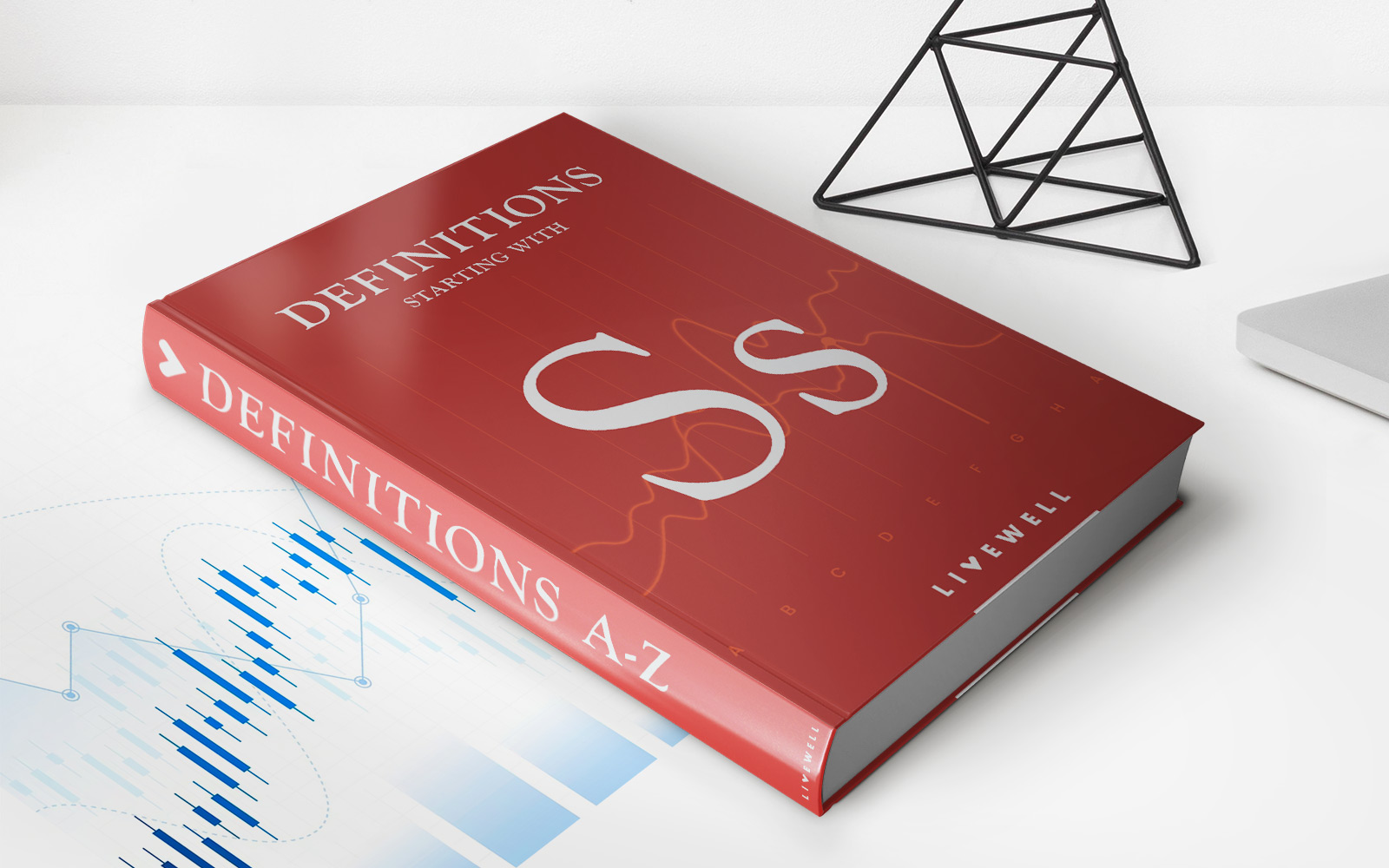

Finance
Why Is My Tax Return Lower Than Last Year?
Published: November 3, 2023
Wondering why your tax return is lower than last year? Get expert financial advice to understand the reasons and make informed decisions for your finances.
(Many of the links in this article redirect to a specific reviewed product. Your purchase of these products through affiliate links helps to generate commission for LiveWell, at no extra cost. Learn more)
Table of Contents
Introduction
As tax season rolls around, many individuals are eagerly anticipating their tax refunds. However, there can be occasions when your tax return is lower than the previous year, leaving you wondering what might have caused this decrease. While it can be disheartening to receive a smaller refund, understanding the reasons behind it can provide some clarity.
Several factors can contribute to a decrease in your tax return. These factors could range from changes in tax laws to adjustments in your personal circumstances. In this article, we will explore some common reasons why your tax return might be lower than the previous year and help shed light on the situation.
It is important to note that every individual’s tax situation is unique, and the reasons for a lower tax return can vary. Consulting with a tax professional or using tax software can provide you with personalized insights into your specific tax situation.
Now, let’s dive into some of the potential reasons why your tax return might be lower this year.
Changes in Tax Laws
One of the primary reasons for a lower tax return could be changes in tax laws. Tax laws are constantly evolving, with new legislation and updates being implemented regularly. These changes can impact various aspects of the tax code, such as income tax rates, deductions, credits, and exemptions.
If there have been significant changes to tax laws since the previous year, it could result in a lower tax return. For example, if there was a decrease in tax rates, you may have earned less in tax credits or deductions, leading to a reduction in your overall refund.
Furthermore, changes in tax laws may also limit the availability of certain deductions or credits that were previously applicable. This can directly affect your taxable income and subsequently lower your tax return.
It is essential to stay up-to-date with the latest tax laws and any modifications that occur. This knowledge can help you understand why your tax return may have decreased and allow you to plan accordingly for future tax seasons.
Additionally, consulting with a tax professional who is well-versed in current tax laws can provide you with valuable insights and guidance tailored to your specific tax situation.
Decreased Income
Another factor that can contribute to a lower tax return is a decrease in income. If your income has decreased compared to the previous year, it can directly impact the amount of taxes you owe and ultimately the size of your tax refund.
There can be various reasons for a decrease in income. It could be due to a job loss, reduced work hours, a change in employment, or a decrease in business profits. When your income decreases, your tax liability is typically lower as well, resulting in a smaller tax refund.
It is important to remember that when calculating your tax liability, the tax system is progressive, meaning that higher incomes are subject to higher tax rates. Therefore, a decrease in income could not only lower your overall tax liability but also place you in a lower tax bracket.
In addition, if you had any sources of income in the previous year that are no longer applicable, such as rental income or investment gains, it can further contribute to a decrease in your tax refund.
It is advisable to review your income sources and compare them to the previous year to identify any significant changes. Understanding the reasons behind the decrease in income can provide you with insights into why your tax return is lower and help you make any necessary adjustments in the future.
Changes in Deductions and Credits
Deductions and credits play a crucial role in reducing your tax liability and can greatly impact the size of your tax return. If there have been changes in the deductions and credits available to you, it can result in a lower tax refund.
Changes in deductions: Deductions are expenses that you can subtract from your taxable income, thereby reducing the amount of income that is subject to tax. If there have been changes in the tax laws that limit or eliminate certain deductions you were able to claim in the past, it could lead to a decrease in your tax refund. For example, if you are no longer eligible for a specific deduction, such as mortgage interest or student loan interest deduction, it can impact the final refund amount.
Changes in credits: Tax credits are beneficial because they directly reduce the amount of tax you owe, providing a dollar-for-dollar reduction. However, changes in the availability or eligibility criteria for certain tax credits can result in a lower tax refund. For instance, if you were previously eligible for a particular tax credit but are no longer eligible due to changes in your personal or financial situation, it can significantly impact your tax return.
It is crucial to review the changes in deductions and credits each year to understand how they may affect your tax situation. Keeping abreast of the latest tax laws, consulting with a tax professional, or using tax software can help you maximize your deductions and credits and minimize any potential decrease in your tax refund.
By staying informed and taking advantage of all eligible deductions and credits, you can optimize your tax return and potentially mitigate any negative impact caused by changes in deductions and credits.
Changes in Tax Withholding
The amount of tax withheld from your paycheck throughout the year can have a significant impact on the size of your tax return. If there have been changes in your tax withholding, it can result in a lower tax refund.
Tax withholding is the amount of income tax that is withheld by your employer from each paycheck to cover your anticipated tax liability. This amount is based on the information provided on your W-4 form, including your filing status, number of allowances, and any additional withholdings you may have specified.
If there have been changes in your tax withholding, it can directly affect the amount of tax withheld throughout the year. For example, if you adjusted your W-4 and increased the number of allowances or made changes to your filing status, it may have resulted in less tax being withheld from your paycheck.
While adjusting your tax withholding can provide extra cash flow throughout the year, it may also lead to a lower tax refund at the end of the year. Conversely, if you withheld too little tax throughout the year, you may end up owing additional taxes instead of receiving a refund.
It is essential to periodically review your tax withholding to ensure it aligns with your tax situation and financial goals. Modifying your withholding can help you strike a balance between receiving more money in your paycheck versus maximizing your tax refund.
Consider consulting with a tax professional or using the IRS withholding calculator to determine the appropriate withholding amount based on your specific circumstances. Adjusting your tax withholding can help you avoid any surprises when it comes to filing your tax return and potentially increase the size of your refund.
Changes in Taxable Income
Changes in taxable income can directly impact the size of your tax return. If there have been significant changes in your taxable income compared to the previous year, it can lead to a lower tax refund.
Taxable income is the portion of your income that is subject to taxation after deducting applicable deductions, exemptions, and credits. If your taxable income decreases, either due to a decrease in overall income or an increase in deductions and credits, it can result in a lower tax liability and subsequently a smaller tax refund.
There can be various reasons for changes in taxable income. For instance, if you experienced a decrease in earnings from employment, self-employment, or investments, it can lead to a decrease in taxable income. Additionally, if you had more deductions or credits available to you in the current year compared to the previous year, it can further decrease your taxable income.
It is important to review your taxable income and compare it to the previous year to identify any significant changes. Understanding the factors that have contributed to the decrease in taxable income can provide insights into why your tax return is lower this year.
Furthermore, taking proactive steps to manage your taxable income can help optimize your tax situation. This can include utilizing deductions and credits effectively, exploring tax-saving strategies, or seeking guidance from a tax professional.
By keeping a close eye on your taxable income and exploring ways to minimize it within the boundaries of tax laws, you can potentially increase the size of your tax refund in future years.
Increase in Tax Rates
An increase in tax rates can directly impact the size of your tax return. If there have been changes in tax rates since the previous year, it can result in a higher tax liability and consequently a lower tax refund.
Tax rates fluctuate based on changes in tax laws and government policies. If tax rates have increased for the current year, it means that you may be subject to a higher percentage of tax on your taxable income.
For example, if the tax rate for your income bracket increased from 20% to 25%, it means that a larger portion of your income will be taxed at the higher rate. This can result in a higher overall tax liability and potentially reduce the size of your tax refund.
An increase in tax rates can also affect other aspects of your tax return, such as deductions and credits. Some deductions and credits may have fixed dollar amounts or percentage limits, which can be impacted by changes in tax rates. This can further contribute to a decrease in your tax refund.
It is crucial to stay informed about changes in tax rates and how they may affect your tax liability. This knowledge can help you plan and make any necessary adjustments to your financial situation during the year to mitigate the impact of increased tax rates on your tax return.
Consulting with a tax professional or using reputable tax software can provide you with accurate and up-to-date information on tax rates and assist you in optimizing your tax planning strategies.
By being aware of changes in tax rates and understanding their impact on your tax liability, you can navigate the tax landscape more effectively and potentially maximize your tax refund.
Changes in Family or Personal Status
Changes in family or personal status can have a significant impact on your tax return. If there have been changes in your marital status, dependents, or other personal circumstances, it can result in a lower tax refund.
Marital status: Getting married or divorced can result in changes to your tax filing status. Depending on your situation, changing from single to married filing jointly or from married filing jointly to single can affect your tax liability. It is important to understand the implications of your new marital status on your tax return and adjust your tax planning accordingly.
Dependents: The addition or removal of dependents can also impact your tax return. If you had a child or another dependent in the previous year but no longer meet the eligibility criteria, it can lead to a decrease in certain deductions and credits, such as the Child Tax Credit or the Dependent Care Credit.
Other personal circumstances: Changes in other personal circumstances, such as moving to a new state, starting a business, or receiving a windfall, can also influence your tax return. These changes may affect your taxable income, deductions, and credits, consequently impacting the size of your tax refund.
It is crucial to communicate any changes in your family or personal status to the IRS and understand how they may affect your tax return. This can involve updating your filing status, adjusting your withholding, or exploring new deductions and credits that may be available to you.
Seeking guidance from a tax professional can be particularly helpful when navigating tax implications related to changes in family or personal status. They can provide valuable insights, personalized advice, and ensure that all relevant tax regulations are properly followed.
By staying informed about how changes in family or personal status can impact your tax return, you can make informed decisions and potentially optimize your tax refund.
Conclusion
Receiving a lower tax return can be disappointing, but understanding the reasons behind it can provide valuable insights and help you plan better for future tax seasons. In this article, we have discussed some common factors that can contribute to a lower tax return.
Changes in tax laws, such as modifications in tax rates, deductions, and credits, can directly impact the size of your tax refund. Staying informed about current tax laws and consulting with professionals can help you navigate these changes more effectively.
Decreased income, whether due to job loss, reduced work hours, or changes in business profits, can also contribute to a lower tax return. Monitoring your income and identifying the causes of any significant drops can assist you in managing your tax situation more efficiently.
Changes in deductions and credits can play a crucial role in reducing your tax liability. Being aware of any adjustments in deductions and credits and using them appropriately can help maximize your tax refund.
Modifications in tax withholding can also impact the size of your tax return. Regularly reviewing and adjusting your tax withholding based on your current tax situation can help you strike a balance between your paycheck and your tax refund.
Furthermore, changes in taxable income and personal or family status, such as getting married, having dependents, or other life events, can influence your tax return. Understanding how these changes affect your tax liability and making the necessary adjustments can optimize your tax refund.
In conclusion, receiving a lower tax return can be attributed to various factors, including changes in tax laws, decreased income, adjustments in deductions and credits, changes in tax withholding, and changes in taxable income or personal circumstances. By staying informed, seeking professional advice, and being proactive in managing your tax situation, you can potentially maximize your tax refund and navigate the ever-changing tax landscape more effectively.














